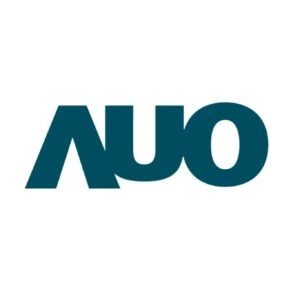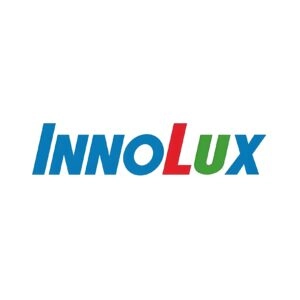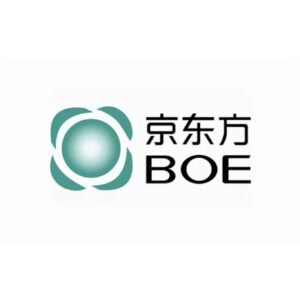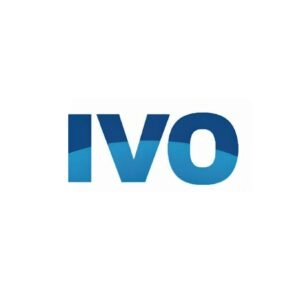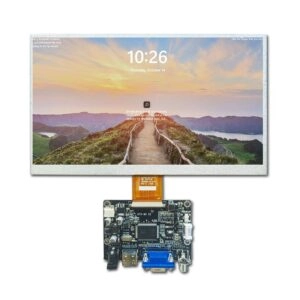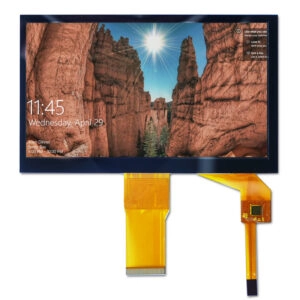What are Monochrome Displays
Monochrome displays show pictures in just one color against a different background. The most common mix is black and white, but you might see green or amber on black too. These screens use pixels that are either “on” or “off” to make images with different light levels.
Monochrome LCD displays are built to show info clearly and use super little power. Their simple setup makes them perfect for jobs where easy use, toughness, and saving energy matter more than fancy colors or complex pictures.
Historical Background
Back when computers were new, monochrome displays were the go-to. Early machines like the Apple II and IBM PC used them because they were cheap and simple.
Before color screens came along, early graphical interfaces, like on the Xerox Alto or first Macintosh computers, worked fine with monochrome screens for text and basic drawings.
These displays became big in industrial and medical gear where clear, reliable screens were super important. Stuff like oscilloscopes, medical tools, and control panels leaned on them a lot.
Benefits of Monochrome Displays
High Contrast
Monochrome displays give awesome contrast, so they’re easy to read even in tricky lighting. This makes them great for places like operating rooms or factory floors where seeing clearly is a must.
Energy Efficiency
These screens use way less power than color ones. That’s a big win for battery-powered gadgets, letting them run longer without a charge.
Durability
Monochrome displays are tough and don’t break easily compared to color screens. They keep working great in rough spots.
Simplicity
Their simple design makes them quick to build and add to devices. This saves time and money when making them.
Focus on Information
With no bright colors to distract, monochrome displays show info super clearly. They’re perfect for important jobs where you need to grab info fast.
Types of Monochrome Displays
LCD (Liquid Crystal Display)
Monochrome LCDs are super popular because they use little power and work in lots of stuff. You’ll find them in calculators, digital watches, and small gadgets.
OLED (Organic Light Emitting Diode)
Monochrome OLED displays have awesome contrast and quick response times. Miqidisplay’s 0.66 inch Small Size Monochrome OLED Screen uses PMOLED tech for zippy energy saving, perfect for tiny devices like smartwatches or medical tools.
![]()
VFD (Vacuum Fluorescent Display)
VFDs are bright and clear, making them easy to read. You see them in car dashboards and store checkouts.
E-Paper Displays
E-paper looks like real ink on paper and is great in sunlight. Monochrome e-paper shows up in e-readers and store shelf tags.
Applications of Monochrome Displays

의료 장비
In hospitals, monochrome displays are in monitors and diagnostic tools where clear, no-mistake info is super important.
Industrial Control Panels
Factories use monochrome displays in control panels and monitoring gear because they’re tough and easy to see.
Consumer Electronics
Stuff like digital watches, clocks, calculators, and some cameras use monochrome displays for their easy and efficient design.
Automotive
Cars use monochrome displays in dashboards, gauges, and infotainment systems where toughness and clear reading matter.
Aviation & Military
Planes and military gear use monochrome displays for controls and instruments to stay reliable in extreme conditions.
Point-of-Sale Systems
Stores use monochrome displays in checkout systems where steady performance beats flashy looks.
Future of Monochrome Displays
Integration with Modern Technology
Even though color screens rule consumer gadgets, monochrome displays are finding cool new uses. They’re popping up in IoT devices, wearables, and smart home stuff.
Sustainability & Efficiency
With more focus on saving the planet, monochrome displays’ low power use makes them a neat choice for energy-smart devices.
Advancements in Display Technology
New OLED and e-paper tech is making monochrome displays sharper and tougher in all kinds of weather.
Specialized Applications
Monochrome displays will keep shining in special jobs where their perks beat the need for color, like factory controls or surgical screens.
Choosing the Right Monochrome Display from Miqidisplay
When picking a monochrome LCD display from 미키디스플레이’s big lineup:
- Application Requirements: Figure out what your job needs. Think about readability, power use, and weather conditions.
- 디스플레이 유형: Pick PMOLEDs for super low-power wearables or rugged VFDs for car dashboards.
- Resolution & Size: Miqidisplay has sizes from 64×48 pixels to 256×664 pixels. Choose based on what you need to show.
- Durability & Lifespan: Their 5.5 inch Monochrome OLED Panel works great from -40°C to 70°C, perfect for outdoor or factory use.
- Customization Options: Miqidisplay lets you tweak cable length, interfaces (SPI/I2C), and cover glass with optical bonding for a perfect fit.
- Certifications & Quality: All Miqidisplay products meet global standards like ISO-9001 and ISO-14001, ensuring top-notch quality.
자주 묻는 질문
Why Should I Choose a Monochrome LCD Display Over a Color One?
If your gadget needs clear text in all kinds of light or long battery life—like wearables or small systems—monochrome LCDs save power and are easy to read.
Are There Customization Options Available at Miqidisplay?
Yup! Miqidisplay offers full customization, like cable tweaks, interface options (HDMI/SPI/I2C), touch screens, and custom cover glass.
What Industries Benefit Most from Using Monochrome LCDs?
Healthcare, cars, factories, planes, military, and consumer gadgets love monochrome LCDs for their toughness under pressure.
How Does Miqidisplay Ensure Product Quality?
Every product gets checked multiple times before shipping. Their factories have TS-16949 certification and meet strict global quality rules.
